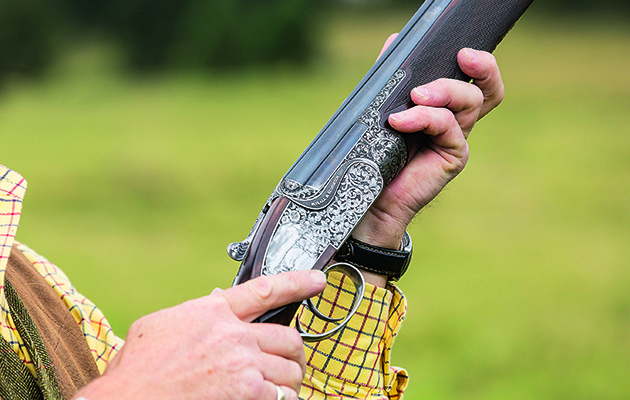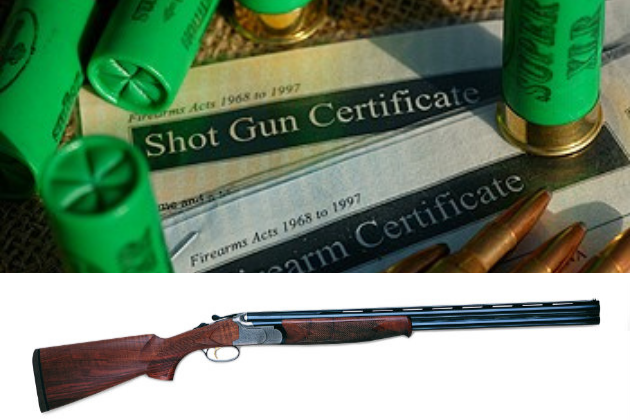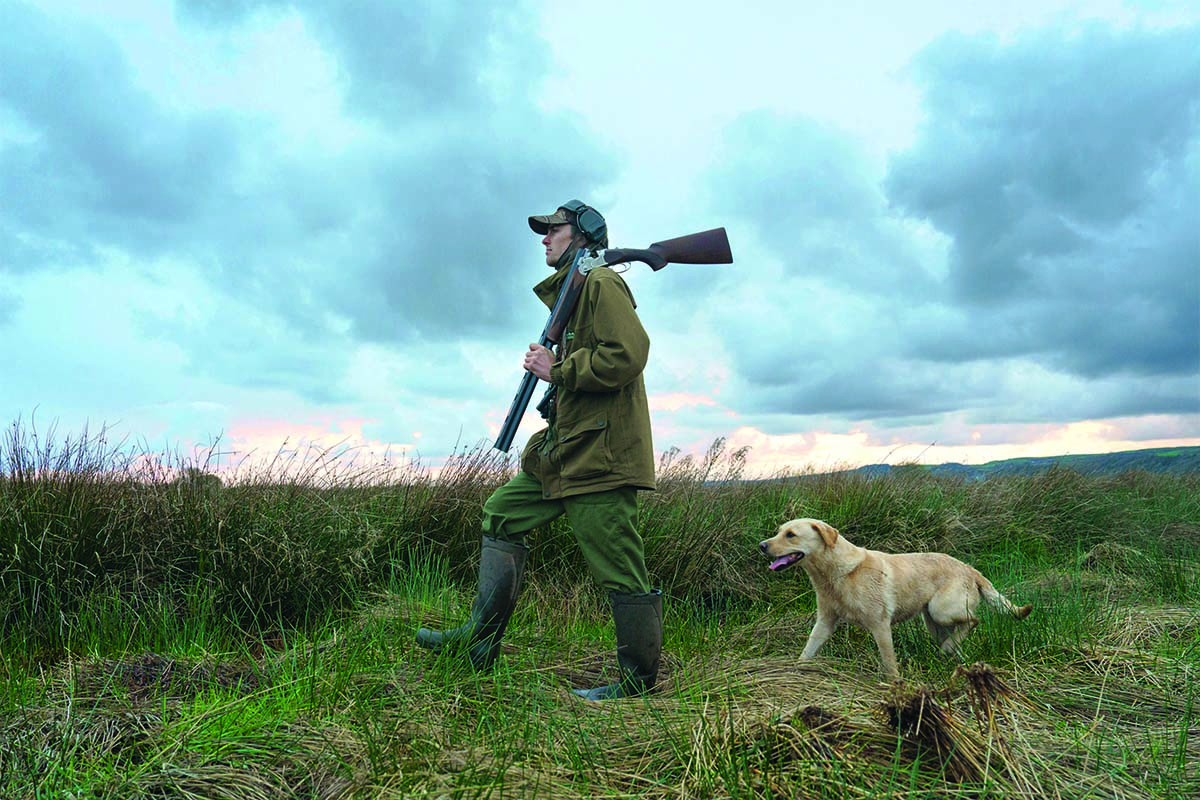What do the changes to the Firearm and Shotgun Certificate application process mean?
A change to the application process for Firearm and Shotgun Certificates in England and Wales was introduced earlier this year to improve information sharing between GPs and police. Helena Venables looks into what this means in practice.

GPs are now required to place a marker on your records as a reminder to them that you own and use guns
The new process, which came into force on April 1, means GPs must now place an ‘encoded marker’ on the medical records of Firearm and Shotgun Certificate holders. This will act as a reminder to the GP that the person in question uses guns. The idea behind the marker is to enable the GP to consider informing the police should changes in a person’s mental health raise concerns about their fitness to possess firearms.
The move has come about in response to recommendations for change submitted by coroners, the Independent Police Complaints Commission (IPCC) and the medical profession, following events such as the murders committed by Derrick Bird in 2010 and Michael Atherton in 2012, both of whom were certificate holders. Notably, in the case of Christopher Foster, who killed his family, set his house alight and committed suicide in 2009, the coroner asked the GP if he was aware of Mr Foster’s financial and business difficulties. The GP said yes. The coroner then asked if he would have wanted to tell the police that Mr Foster had these problems if he knew he had access to firearms. The answer was also yes.
Linking the chain
The new system should mean any medical concerns that arise in the five years between the issue of the holder’s FAC or SGC and its renewal are picked up earlier – provided of course the GP is aware of them. The change follows three years of work by a Home Office working group of representatives from the police, the medical profession including the British Medical Association (BMA), the Information Commissioner’s Office, and shooting organisations.
While the encoded marker system complements the current system of ascertaining medical suitability of firearm/shotgun holders, applicants must still declare relevant medical conditions on their application form. However, following the grant of an FAC/SGC the police now write a standard letter to the certificate holder’s GP informing them that the person owns firearms. In the same letter the GP is asked to notify the police if they have any concerns and is also asked to confirm they have placed the medical marker on the patient’s record. The marker will remain on the record while the certificate is valid and the police will inform GPs when certificates are revoked, cancelled or expire so the code can be inactivated. The implementation of the new process follows a successful pilot by Essex Police, supported by BASC, involving more than 7,000 firearms owners. Deemed highly successful, it showed that GPs needed to be consulted in fewer than two per cent of firearm and shotgun applications.
Many shooters have expressed concerns about the new system, feeling it is just another punitive process. However, it is important to remember that information sharing applies to many areas subject to licensing regimes; the driving licence is a common example of where information is shared between the police, doctors and the DVLA and very few people object to that.
Prevention is better than cure
Dave Orford, assistant chief constable at Durham Constabulary and the new national lead on firearms licensing, notes that the old adage of prevention being better than cure applies to both policing and the medical profession.
“While the police service has a role to issue firearms and shotgun certificates, we also share a duty with many public bodies to keep people safe from harm. The inclusion of an enduring marker on someone’s medical record is in line with the duty of the police service and the medical profession to prevent harm to individuals and communities wherever practicable. The current arrangements are a voluntary scheme with doctors, but I would like to see how they develop and I’m keen to be involved with ongoing discussions with the shooting community and the medical profession as to how we can make the entire process of issue and renewal of certificates as effective as possible. Where information exists that might help with an early review or intervention to prevent harm, that is always preferable to an investigation after an event.
“I also see the introduction of the marker as part of a wider discussion on how the police service could better tailor the ongoing review of certificates, and better focus our resources. This would help the vast majority of certificate holders see a quicker, more bespoke service, as systems and better information sharing can help an ongoing review of suitability.”
Further improvements are due later this year when police will contact each applicant’s GP during the application process instead of after the certificate is granted. The process will be monitored to ensure it is implemented consistently and early problems are ironed out.
Matt Perring, senior firearms officer at BASC, comments: “Discussions continue with ACC Dave Orford and the BMA to find resolutions to some of the teething issues and with a view to reviewing the standard letter content. We will continue to monitor and work with the national policing lead and Home Office officials.”
Concerns among gun owners
Looking at online forums, there seem to be four key questions from the shooting community about the new system. Who is now responsible for the decision to issue a certificate? What if a GP is anti-shooting? Will the new system impact on firearms security? Will it compromise medical confidentiality?
In the first instance, no liability is transferred to the GP and the responsibility is solely that of the chief constable of the applicant’s police force. Secondly, if an applicant comes across a GP who does not want to operate the new system they should ask another GP in the practice, or if this is not possible should discuss the situation with their police firearms licensing department. In practice the likelihood of a GP refusing to participate is extremely rare as the system forms part of duty of care.
In terms of firearms security, due care must be exercised by GPs regarding information on gun ownership in the same way that sensitive medical information is handled.
On the subject of medical confidentiality, by submitting a firearm or shotgun application the applicant has given consent for police to contact the GP to obtain details of their medical history, and for the GP to provide this information to the police. This consent is valid during the application process and through the duration of the firearm or shotgun certificate.
It is important to note that while doctors owe a duty of confidentiality to all their patients, that duty is not absolute. Where there is a reasonable belief that an individual either applying for a firearm or shotgun certificate or already holding one may represent a danger to themselves or others, the BMA advises doctors to encourage the applicant to reconsider or revoke their application. In cases where an applicant refuses, the GP must then consider breaching confidentiality and informing the police firearms licensing department as a matter of urgency.
Reserved judgement
Along with BASC, UK shooting organisations are positive about the changes but want to ensure that the interests of gun owners remain represented. Tim Bonner, chief executive of the Countryside Alliance, says: “With the full cooperation of certificate holders, GPs and police forces, we see this new system being a success. Furthermore, there will be a review of the project after six months and another after a year to ensure any arising issues can be straightened out. We will be entering vigorously into these reviews to ensure the shooting community’s interests are safeguarded, and will be looking to survey our members’ views at that time.”
Tim Weston, development officer for the National Gamekeepers’ Organisation, a member of the Home Office working group, adds: “The NGO fought hard to ensure that changes to the licensing system were proportionate, realistic and fair. We have reserved judgment on the new system and we want to see the results of the upcoming review before deciding whether it has been a success. The NGO helped secure improvements in how the new approach is applied, but uncertainties remain; we would be delighted to hear from members whether the system is causing them difficulties.”
10-year licence on the horizon
One clear potential benefit of the new system will be to add clout to the proposal for FAC and SGC terms to be extended from the current five years to 10. Much of the argument for this is based on the fact that police systems have become far more efficient since the five-year term was introduced in the early 1990s and that intelligence sharing on issues such as domestic abuse, violent crime, etc. are virtually immediate to the firearms licensing team. Now medical health issues can be communicated immediately it would appear there is little reason why 10-year certificates cannot be introduced, thereby reducing the burden on the police and costs.
BASC’s Matt Perring comments: “Constant monitoring of police data and established reporting links with GPs is essential to achieving the 10-year certificate and without it the authorities would not be comfortable to accept an increased term. We, like the police, wish to ensure the public are confident in any new system.” Tim Bonner of the CA agrees: “With a workable system that pushes licensees towards continuous monitoring we see no reason why the Home Office should not choose to move to a 10-year licensing programme.” That, of course, would see great enthusiasm from the shooting community.
Advice on potential fees
BASC has said that those applying for and renewing shotgun or firearm certificates should not pay any fee demanded by their general practitioner for conforming to the guidance issued by the government.
Under the guidance the general practitioner is required to check the applicant’s medical record and inform the licensing authority of any medical facts that may be relevant to the grant or renewal of a certificate. Doctors are not required to give an opinion on the suitability of the applicant for a certificate. A fee only becomes justified if the licensing authority require further medical involvement beyond the initial response.
BASC advises applicants to refuse to pay any fee demanded. Should the doctor refuse to participate without money, the guidance states that after 21 days, if there is no response from the doctor, it will be assumed that there are no medical issues.








